When it comes to customizing your Starbucks beverages, choosing the right milk can make all the difference. With so many milk options available, it’s important to know what each one offers in terms of taste and nutrition. Whether you’re looking for a dairy-free alternative or just trying to cut back on calories, Starbucks has a variety of milk options to suit your needs.
Starbucks offers a range of milk options, from whole milk to nonfat milk, soy milk, almond milk, and coconut milk. Each type of milk has its own unique flavor and texture, which can affect the taste of your drink. For example, whole milk is rich and creamy, while nonfat milk is lighter and less filling.
If you’re looking for a dairy-free option, soy milk, almond milk, and coconut milk are all great choices that can add a nutty or tropical twist to your drink.
So next time you’re at Starbucks, don’t be afraid to experiment with different milk options to find the perfect match for your taste buds. Whether you’re a die-hard dairy fan or a plant-based enthusiast, Starbucks has something for everyone.
Dairy Milk Varieties
Starbucks offers a variety of dairy milk options that can be used in any drink. Here are the different types of dairy milk that Starbucks offers:
Whole Milk
Starbucks’ whole milk is a classic choice, known for its full-bodied flavor and creamy texture. It’s the go-to milk for those who want to savor their coffee with a rich and indulgent taste. Whole milk complements the robust flavors of Starbucks coffee, adding a delightful creaminess that enhances the overall coffee experience.
Nutrition Facts (per cup):
- Calories: Approximately 150
- Sugar: About 12 grams
- Fat: About 8 grams
- Protein: About 8 grams
- Carbohydrates: Around 12 grams
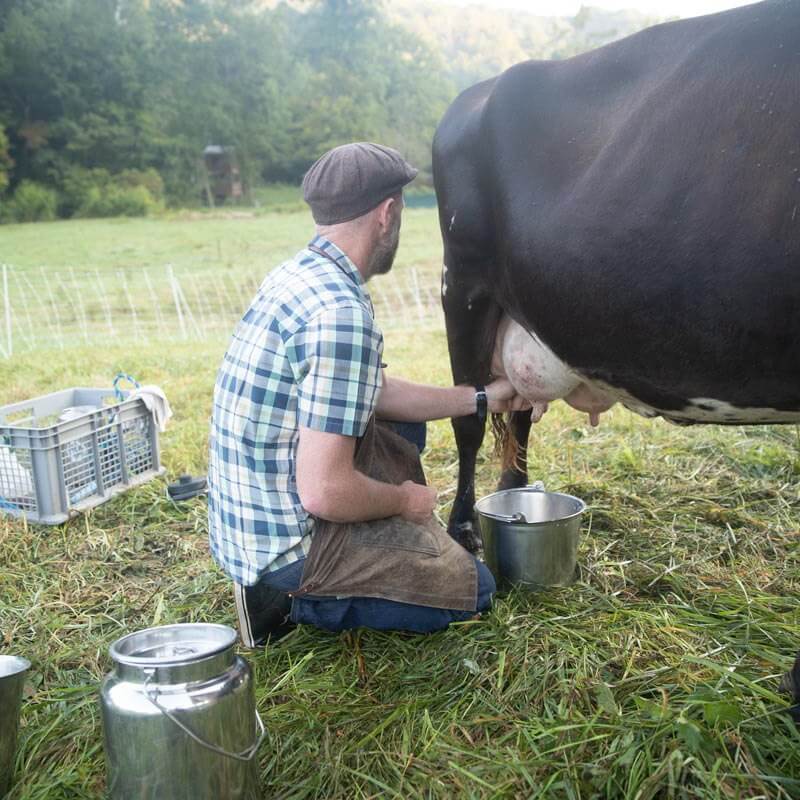
2% Milk
2% Milk at Starbucks is a versatile choice for those seeking a middle ground between whole milk and skim milk. It strikes a balance between creaminess and reduced fat content, making it a popular option for coffee enthusiasts.
While it contains more fat than skim milk, 2% milk still offers a lighter texture compared to whole milk, making it suitable for various coffee beverages. It adds a touch of creaminess without overwhelming the flavors of your favorite Starbucks drinks.
If you’re looking to cut down on calories and fat while maintaining a satisfying mouthfeel in your coffee, 2% milk is an ideal choice. It pairs well with Starbucks’ diverse coffee offerings, ensuring you can enjoy your brew just the way you like it.
Nutrition Facts (per cup):
- Calories: Approximately 120
- Sugar: About 12 grams
- Fat: About 5 grams
- Protein: About 8 grams
- Carbohydrates: Around 12 grams
Non-Fat Milk
Non-fat milk, often referred to as skim milk, is the ideal choice for those who prefer their coffee with minimal fat content. As the name implies, it’s milk from which the fat has been removed, making it a popular selection for those aiming to reduce their fat intake while still savoring the creamy essence of milk in their coffee.
In terms of taste, non-fat milk boasts a milder flavor when compared to whole milk or 2% milk. It offers a clean and slightly less creamy texture in your coffee, letting the coffee’s unique flavors take center stage.
From a nutritional perspective, non-fat milk is a lower-calorie and lower-fat alternative compared to whole milk. Here’s a breakdown of the approximate nutritional values per cup.
Nutrition Facts (per cup):
- Calories: Approximately 80
- Sugar: About 12 grams
- Fat: Less than 1 gram
- Protein: About 8 grams
- Carbohydrates: Around 12 grams
Heavy Cream
Heavy cream, also known as heavy whipping cream, is the thickest and richest type of cream available. It contains a high fat content, typically around 36-40%, which gives it a luxurious and velvety texture.
When you add heavy cream to your coffee, it imparts a creamy, indulgent taste that elevates your beverage to a whole new level of richness. It’s a perfect choice if you’re looking to enhance the flavor and texture of your coffee without any added sweetness.
Whether you’re crafting a specialty espresso drink or simply seeking a luscious creamer for your daily brew, heavy cream at Starbucks can be customized to suit your preferences. Just remember that it’s a high-calorie option due to its fat content, so use it in moderation if you’re watching your calorie intake.
Nutrition Facts (per cup):
- Calories: Approximately 800 (Note: Heavy cream is typically used in smaller amounts due to its richness.)
- Sugar: Minimal
- Fat: Approximately 88 grams
- Protein: Minimal
- Carbohydrates: Minimal
Half-and-Half
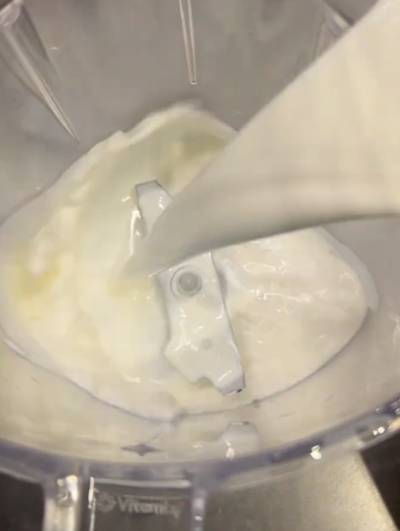
Half-and-Half at Starbucks is a classic choice for those seeking a balanced combination of creaminess and richness in their coffee. It’s made by mixing equal parts of whole milk and heavy cream, creating a dairy blend that’s neither too light nor too heavy. This makes it an ideal option if you want to enhance the texture and flavor of your coffee without overwhelming it.
The taste of Half-and-Half is characterized by its mild, slightly sweet, and creamy profile. It complements coffee beautifully, adding a subtle richness that doesn’t overshadow the coffee’s natural flavors. Whether you prefer your coffee hot or iced, Half-and-Half can be easily incorporated to create a smooth and velvety coffee experience.
One of the great things about Half-and-Half is its versatility. It’s a popular choice for traditional coffee lovers who appreciate the creamy indulgence it brings. Additionally, it can be used in various Starbucks beverages, from lattes and cappuccinos to iced coffee and cold brew, allowing you to customize your coffee just the way you like it.
Nutrition Facts (per cup):
- Calories: Approximately 315 (Note: Half-and-half is typically used in smaller amounts due to its richness.)
- Sugar: Minimal
- Fat: Approximately 28 grams
- Protein: Minimal
- Carbohydrates: Minimal
Sweet Cream

Starbucks’ Sweet Cream is a delectable fusion of heavy cream and vanilla syrup, resulting in a delightful blend of sweetness and creaminess that elevates your coffee experience. It’s a favored choice, especially for cold beverages like iced coffee and Frappuccinos.
This pre-sweetened creamer simplifies your coffee preparation, infusing a rich and sweet flavor to your brew. If you have a penchant for a touch of sweetness in your coffee, Starbucks’ Sweet Cream is a perfect addition.
With its harmonious balance of creamy and sweet elements, it caters to those with a sweet tooth, imparting a subtle sugary indulgence to your coffee.
Nutrition Facts (per cup):
- Calories: Approximately 480 (Note: Sweet cream is typically used in smaller amounts due to its sweetness.)
- Sugar: Approximately 36 grams
- Fat: Approximately 36 grams
- Protein: Minimal
- Carbohydrates: Approximately 36 grams
| Dairy Milk Alternative | Definition | Taste | Brand |
|---|---|---|---|
| Whole Milk | Full-fat milk with a fat content of 3.25% by weight. | Rich and creamy | Various brands depending on location, including Dean Foods, Borden Milk, or Good and Gather |
| 2% Milk | Reduced-fat milk with a fat content of 2% by weight. | Creamy and slightly sweet | Various brands depending on location, including Dean Foods, Borden Milk, or Good and Gather |
| Nonfat Milk | Milk that has had all of its cream removed, resulting in a milk with a fat content of less than 0.5%. | Thin and slightly sweet | Various brands depending on location, including Dean Foods, Borden Milk, or Good and Gather |
| Heavy Cream | A high-fat dairy product that contains at least 36% fat. | Rich and creamy | Various brands depending on location, including Dean Foods, Borden Milk, or Good and Gather |
| Half-and-Half | A blend of equal parts whole milk and cream, resulting in a milk with a fat content of about 12%. | Creamy and slightly sweet | Various brands depending on location, including Dean Foods, Borden Milk, or Good and Gather |
| Sweet Cream | Cream blended with vanilla syrup | Sweet and creamy | Starbucks |
It’s important to note that whole milk, 2% skim milk, and non-fat milk all contain lactose, so they may not be suitable for those who are lactose intolerant. Heavy cream, half-and-half, and sweet cream all contain very little lactose, so they may be better options for those who are lactose intolerant.
Non-Dairy Milk Alternatives
With a growing demand for plant-based options, Starbucks offers four non-dairy milk alternatives: almond milk, soy milk, coconut milk, and oat milk.
Choosing non-dairy milk has several benefits. First, it caters to dietary preferences such as veganism and lactose intolerance. Second, it can reduce environmental impact since the production of non-dairy milk typically requires less water and land compared to dairy milk.

Almond Milk
Starbucks offers almond milk as a dairy-free alternative for those seeking a lighter and plant-based option in their coffee. Almond milk has gained popularity for its pleasant nutty flavor and lower calorie content compared to dairy milk.
It complements various coffee beverages, adding a mild nuttiness that enhances the overall taste without overpowering it. Almond milk is a versatile choice, suitable for both hot and cold drinks, making it an excellent option for customization.
Nutrition Facts (per cup):
- Calories: Approximately 60
- Sugar: Approximately 5 grams
- Fat: Approximately 4 grams
- Protein: Approximately 2 grams
- Carbohydrates: Approximately 6 grams
Soy Milk
Starbucks offers soy milk as a versatile dairy-free alternative for your coffee preferences. Derived from whole soybeans, this plant-based milk boasts a creamy texture and a subtle, nutty undertone.
Soy milk serves as an excellent dairy replacement, catering to vegans and those with lactose sensitivities. Whether you’re enjoying a latte, cappuccino, or any coffee creation, you can easily opt for soy milk to suit your dietary preferences.
Notably, soy milk stands out for its lower calorie content in comparison to certain other milk choices, presenting a lighter option for your coffee indulgence. Moreover, it’s often fortified with essential vitamins and minerals, making it a nutritious addition to your daily brew.
Nutrition Facts (per cup):
- Calories: Approximately 100-130
- Sugar: Variations exist based on brand and sweetened or unsweetened selections
- Fat: Roughly 3-4 grams
- Protein: Typically around 6-8 grams
- Carbohydrates: Averaging about 10-12 grams
Coconut Milk
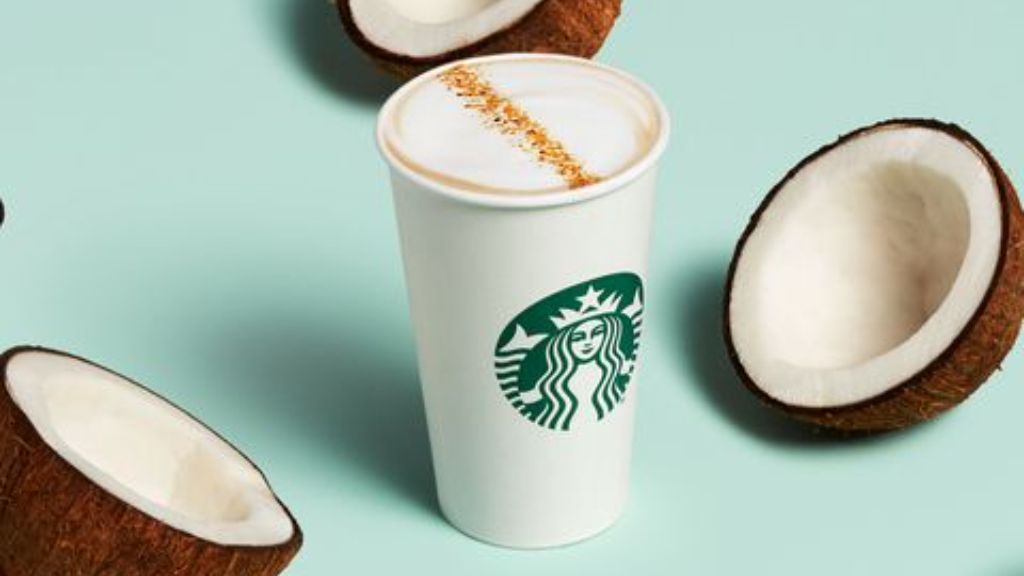
Starbucks’ Coconut Milk offers a tropical twist to your coffee, enhancing its flavor profile with a mild and refreshing coconut essence. It’s an ideal choice if you’re seeking a dairy-free alternative that brings a hint of the tropics to your beverage.
This non-dairy option complements various coffee drinks, making it a versatile choice for those who prefer a plant-based option. It’s known for its subtle coconut undertones that can add an exotic touch to your daily brew.
Nutrition Facts (per cup):
- Calories: Approximately 80
- Sugar: Approximately 7 grams
- Fat: Approximately 5 grams
- Protein: Approximately 1 gram
- Carbohydrates: Approximately 8 grams
Oat Milk
Starbucks’ Oat Milk is a creamy and dairy-free alternative that offers a slightly sweet and oaty flavor to your coffee. It’s known for its smooth and velvety texture, making it a favorite among those who appreciate a rich and comforting coffee experience.
This plant-based milk option pairs well with various coffee beverages, elevating their taste while maintaining a dairy-free profile. It’s an excellent choice for those looking for a creamy and sustainable alternative.
Nutrition Facts (per cup):
- Calories: Approximately 130
- Sugar: Approximately 7 grams
- Fat: Approximately 5 grams
- Protein: Approximately 2 grams
- Carbohydrates: Approximately 16 grams
| Non-Dairy Milk Alternative | Definition | Taste | Brand | Price |
|---|---|---|---|---|
| Soy Milk | Made from soybeans, this plant-based milk alternative offers plenty of protein and amino acids. | Nutty and slightly sweet | Silk | $3.99 per half-gallon |
| Almond Milk | Made from almonds, this plant-based milk alternative is low in calories and high in vitamin E. | Nutty and slightly sweet | Blue Diamond Almonds | $2.99 per half-gallon |
| Coconut Milk | Made from the flesh of coconuts, this plant-based milk alternative is rich and creamy. | Sweet and nutty | So Delicious | $4.99 per half-gallon |
| Oat Milk | Made from oats, this plant-based milk alternative is creamy and slightly sweet. | Creamy and slightly sweet | Oatly | $4.99 per half-gallon |
| Hemp Milk | Made from hemp seeds, this plant-based milk alternative is nutty and slightly sweet. | Nutty and slightly sweet | Pacific Foods | $3.99 per half-gallon |
| Pea Milk | Made from yellow peas, this plant-based milk alternative is high in protein and low in calories. | Creamy and slightly sweet | Ripple | $4.99 per half-gallon |
All in all, Starbucks offers a variety of non-dairy milk alternatives that cater to different dietary preferences and taste preferences. Whether you’re looking for a creamy, nutty flavor or a sweet, tropical flavor, there’s a non-dairy milk alternative for you.
Starbucks keto Low-carb milk options
- Almond Milk
- Coconut Milk
- Soy Milk
- Heavy Cream
- Half-and-Half
- Oat Milk
- Hemp Milk
- Pea Milk
Starbucks sugar free milk options
- Unsweetened Almond Milk
- Unsweetened Coconut Milk
- Unsweetened Soy Milk
- Heavy Cream (although it does contain some lactose, which is a natural sugar found in milk)
- Half-and-Half (also contains some lactose)
Starbucks vegan plant based milk
- Almond Milk
- Coconut Milk
- Soy Milk
- Oat Milk
- Cashew Milk
- Walnut Milk
- Macadamia Nut Milk
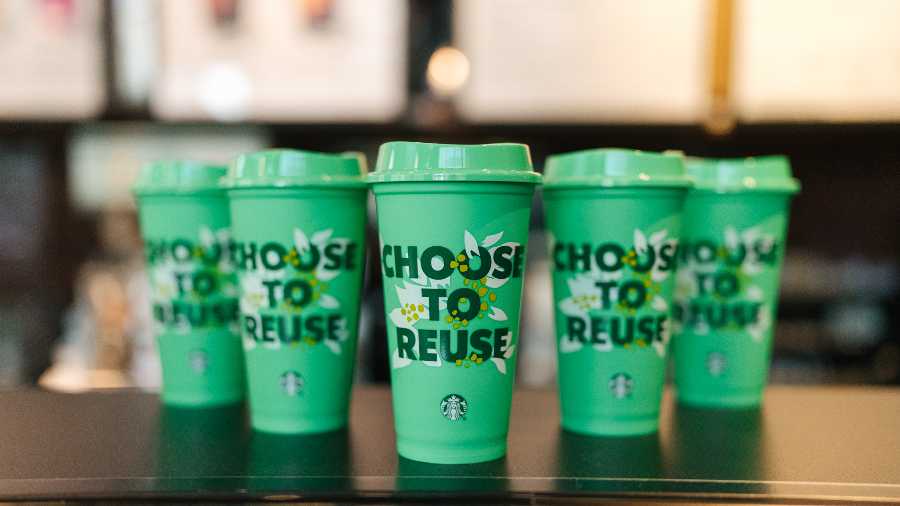
Customize Drinks with Milk Alternatives
Can You Choose Any Type of Milk for Any Drink?
Yes, you can choose any type of milk for any drink on the Starbucks menu. Whether you want to swap out the dairy milk in your latte for almond milk or coconut milk, or opt for soy milk in your Frappuccino, the choice is yours. However, keep in mind that some milk alternatives may not be suitable for certain drinks. For example, coconut milk may not be the best choice for a cappuccino, as it doesn’t froth as well as dairy milk or other milk alternatives.
How to Choose the Right Milk Alternative at Starbucks?
With so many milk alternatives to choose from, it can be overwhelming to decide which one to go for. Here are some tips to help you choose the right milk alternative for your Starbucks drink:
- Consider the flavor: Different milk alternatives have different flavors, so think about which one would complement your drink the best. For example, almond milk has a slightly nutty flavor that can work well in a latte or cappuccino, while coconut milk can add a tropical twist to a mocha or Frappuccino.
- Think about the consistency: Milk alternatives also have different consistencies, which can affect the texture of your drink. For example, soy milk is thicker than almond milk, which can make it a good choice for a creamy Frappuccino.
- Consider dietary restrictions: If you have any dietary restrictions or preferences, such as a dairy allergy or a vegan diet, make sure to choose a milk alternative that fits your needs. Starbucks offers a variety of non-dairy milk alternatives, including soy milk, almond milk, coconut milk, and oat milk.
In a nutshell, customizing your Starbucks drink with milk alternatives is a great way to make it your own. With a little experimentation, you can find the perfect milk alternative to suit your taste preferences and dietary needs.
Special Milk-Based Beverages
Starbucks is known for its signature milk-based beverages, such as lattes, cappuccinos, and macchiatos. These drinks are made with espresso shots and steamed milk, and the choice of milk can impact the flavor and texture of the drink.
If you prefer a stronger coffee flavor, you may want to opt for a cappuccino, which is made with equal parts espresso, steamed milk, and foam. This drink pairs well with whole milk, which adds a creamy texture and a slightly sweet flavor.
If you prefer a milder coffee flavor, a latte may be more up your alley. Lattes are made with espresso and steamed milk, with a layer of foam on top. Non-fat milk and 2% milk are excellent options for this beverage, as they contribute a delicate and frothy texture without overshadowing the rich coffee flavor.
For those who like a little bit of sweetness in their coffee, a caramel macchiato is a popular choice. This drink is made with vanilla syrup, steamed milk, espresso shots, and a drizzle of caramel sauce on top. Whole milk is a good choice for this drink, as it adds a creamy texture that pairs well with the sweetness of the caramel.
Health and Dietary Considerations
When it comes to Starbucks milk options, there are several health and dietary considerations to keep in mind. Whether you’re looking to cut calories, reduce sugar intake, or avoid certain allergens, there are milk options available to suit your needs.
If you’re looking for a lower calorie and sugar option, Starbucks coconut milk and almond milk are both great choices. Almond milk, in particular, has just 7 grams of sugar and 130 calories per serving, making it the healthiest milk option at Starbucks according to Spoon University.
For those with dietary restrictions, Starbucks offers several plant-based milk options, including soy milk, coconut milk, and almond milk. Soy milk is a popular dairy alternative and contains nearly as much protein as cow’s milk, making it a good choice for those who are lactose intolerant or have nut allergies. Coconut milk is a great choice for those who are allergic to dairy or soy, and it has a slightly sweet and nutty flavor that pairs well with coffee.
If you’re vegan, it’s important to note that Starbucks’ regular whipped cream contains dairy, but they do offer a non-dairy whipped topping made from coconut milk. Additionally, not all of Starbucks’ syrups are vegan, so be sure to check the ingredients before ordering.
Sustainability and Ethical Sourcing
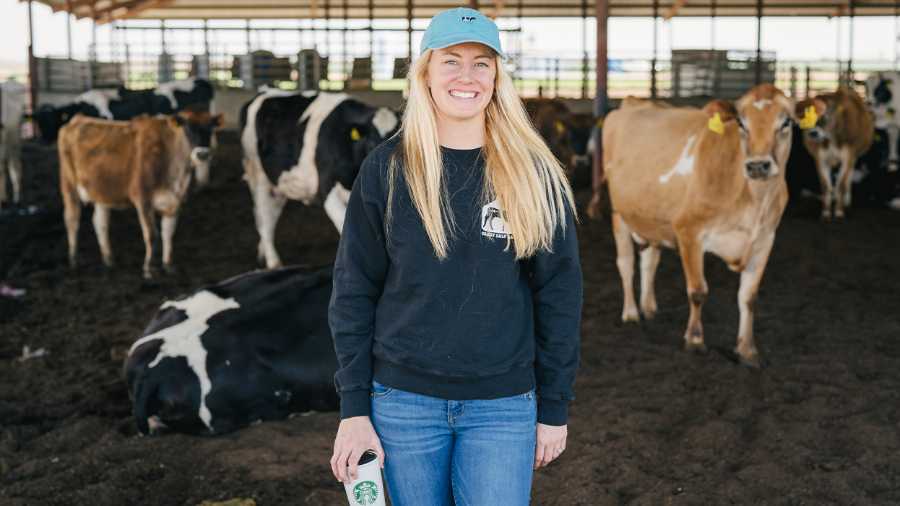
If you’re a conscious consumer, you’ll be happy to know that Starbucks is committed to sustainable and ethically sourced milk. Starbucks recognizes the importance of animal welfare, environmental impact, and responsible dairy sourcing.
To ensure that the milk used in their beverages is sourced sustainably, Starbucks has implemented a number of initiatives. For example, they have piloted a Sustainable Dairy Program in the United States, China, and the U.K. This program aims to refine and scale an approach to sustainable dairy and environmental stewardship for the betterment of people, planet, and animals.
Starbucks also has a comprehensive coffee-buying program called Coffee and Farmer Equity (C.A.F.E.) Practices. This program ensures coffee quality while promoting social, economic, and environmental standards. The cornerstone of their approach to sourcing coffee is to promote sustainable farming practices that protect the environment and improve the livelihoods of farmers and their communities.
In addition to their coffee program, Starbucks has also partnered with the World Wildlife Fund (WWF) to develop a set of science-based environmental targets. These targets include reducing carbon emissions, water usage, and waste, as well as increasing the use of renewable energy and sustainable products.
When it comes to animal welfare, Starbucks has a set of guidelines that all their suppliers must follow. These guidelines include ensuring that their animals have access to clean water and a nutritious diet, as well as providing them with adequate space to move around and express natural behaviors.
Overall, Starbucks is committed to sourcing milk and other ingredients in a way that is sustainable, ethical, and responsible. By choosing to support companies that prioritize sustainability and ethical sourcing, you can help make a positive impact on the environment and the lives of animals and farmers.
Starbucks Milk Options Cost
Is Using Milk Alternatives at Starbucks More Expensive Than Regular Dairy Milk?
If you’re wondering whether using milk alternatives at Starbucks is more expensive than regular dairy milk, the answer is yes. Milk alternatives like soy milk, almond milk, and coconut milk typically cost an additional $0.60 to $0.80 per drink. This is because these milk alternatives are more expensive for Starbucks to purchase and stock.
Which Starbucks Milk Options Cost More?
If you’re interested in cutting costs on your Starbucks order, here’s a breakdown of the pricing for each milk option available at Starbucks:
| Milk Option | Cost |
|---|---|
| Whole Milk | No extra charge |
| 2% Milk | No extra charge |
| Non-Fat Milk | No extra charge |
| Half-and-Half | No extra charge |
| Heavy Cream | No extra charge |
| Vanilla Sweet Cream | No extra charge |
| Soy Milk | Additional $0.60-$0.80 |
| Almond Milk | Additional $0.60-$0.80 |
| Coconut Milk | Additional $0.60-$0.80 |
| Oat Milk | Additional $0.60-$0.80 |
If you’re aiming to be budget-conscious during your Starbucks visit, opting for traditional dairy milk is the most economical choice.
Although milk alternatives at Starbucks come with a higher price tag compared to regular dairy milk, it’s crucial to select the milk option that aligns with your dietary requirements and taste preferences.
Final Thoughts
Now that you know all about the different milk options at Starbucks, it’s time to explore and try them out for yourself. With so many milk varieties to choose from, you can customize your drink to your liking and experiment with different flavors and textures.
Remember that each milk option has its own unique taste and nutritional benefits, so don’t be afraid to try something new. If you’re looking for a creamier and richer taste, whole milk or heavy cream is a good option. On the other hand, if you’re watching your calories, nonfat milk or 2% milk is a great alternative.
If you have a dairy allergy or lactose intolerance, Starbucks offers several non-dairy milk options such as soy milk, coconut milk, and oat milk. These milk alternatives are also suitable for vegans or those who prefer a plant-based diet.
Don’t forget to ask your barista for recommendations or suggestions on which milk to use for your drink. They can help you find the perfect milk option to complement your coffee or tea.
FAQs
What milk do Starbucks Reserve stores use?
Starbucks Reserve stores use the same milk options as regular Starbucks stores. Starbucks offers a variety of milk options for their coffee beverages, including dairy milk (whole milk, 2% milk, nonfat milk, heavy cream, and half-and-half) and non-dairy milk alternatives (such as soy milk, almond milk, coconut milk, oat milk, hemp milk, and pea milk). The specific type of milk used at a particular Starbucks Reserve store may depend on the location and availability of the milk options.
What is Skinny Milk in Starbucks?
Skinny Milk at Starbucks typically refers to non-fat milk or skim milk. It’s a lower-calorie milk option that contains minimal fat.
What milk does Starbucks use in lattes?
Starbucks primarily uses 2% milk (reduced-fat milk) for their lattes. However, you can often customize your latte with various milk alternatives like almond milk, soy milk, or oat milk.
What is the healthiest milk at Starbucks?
The healthiest milk option at Starbucks depends on your dietary preferences. If you’re looking for low calories and fat, non-fat (skim) milk is a good choice. For a dairy-free and plant-based option, almond milk, oat milk, or soy milk can be considered healthy alternatives.
What is the lowest calorie milk at Starbucks?
The lowest calorie milk option at Starbucks is typically their Almond Milk, which contains around 60 calories per cup.
Which Starbucks milk has the least carbs?
Among the Starbucks milk choices, unsweetened almond milk and unsweetened soy milk stand out with the lowest carbohydrate content. In a grande (16 oz) serving, unsweetened almond milk contains merely 3 grams of carbohydrates, while unsweetened soy milk contains a slightly higher but still low 4 grams of carbohydrates. These options are ideal for those seeking a lower-carb milk alternative in their Starbucks beverages.
